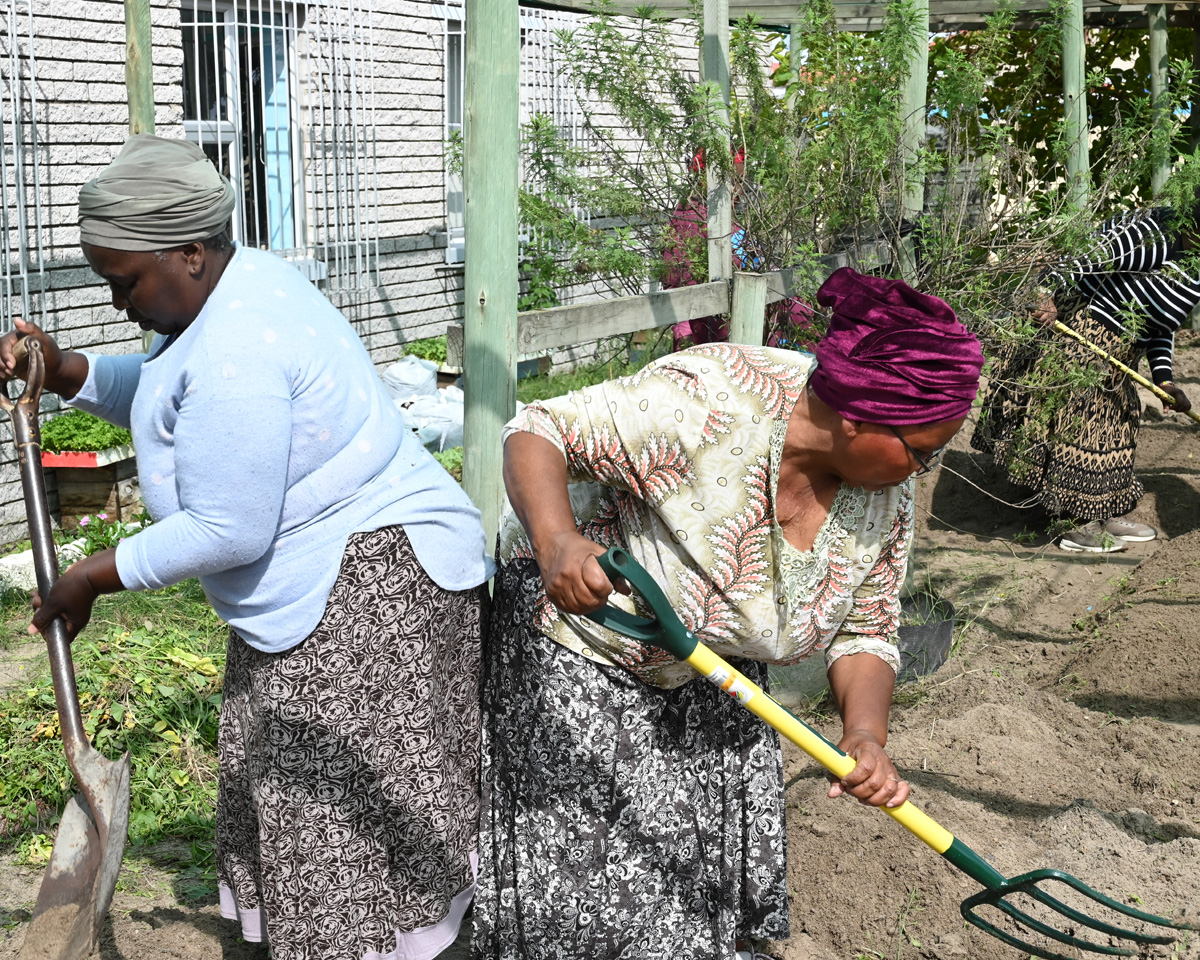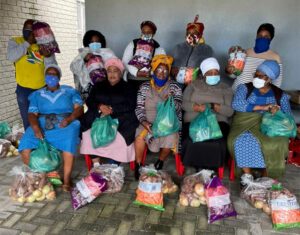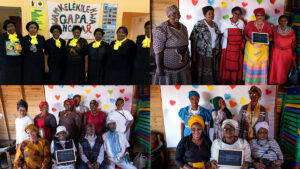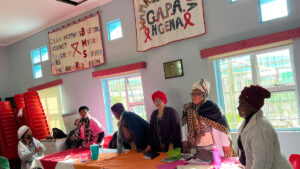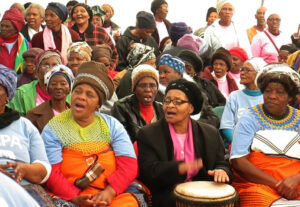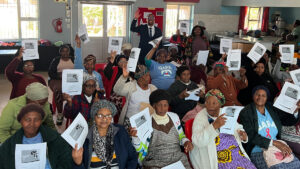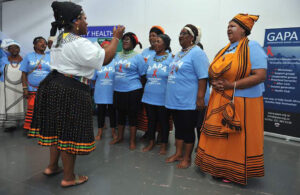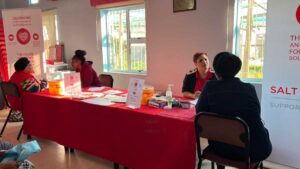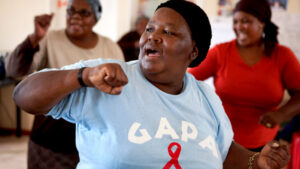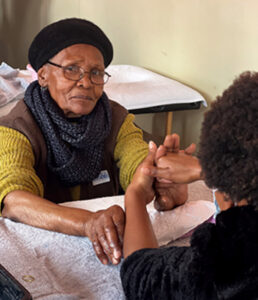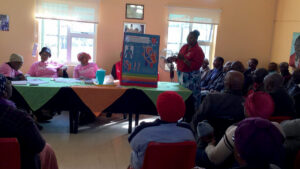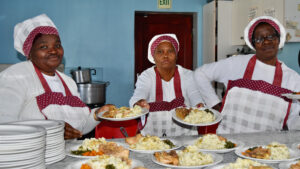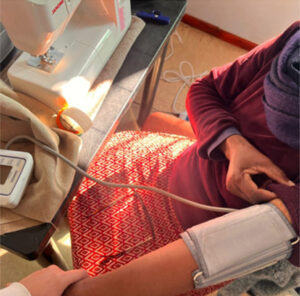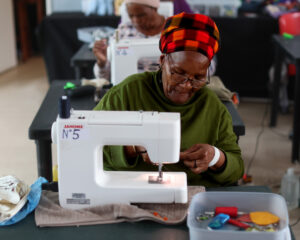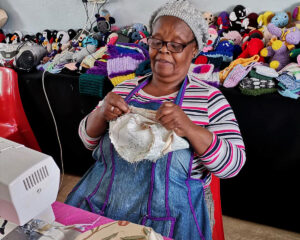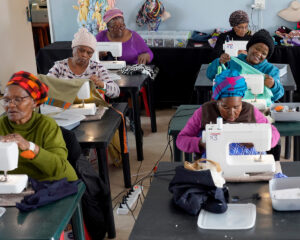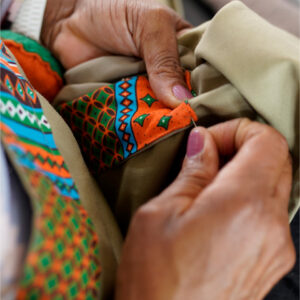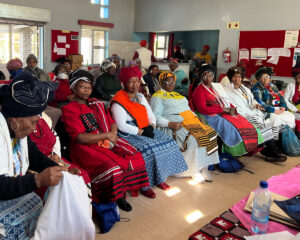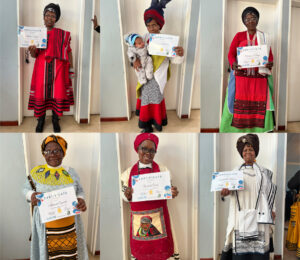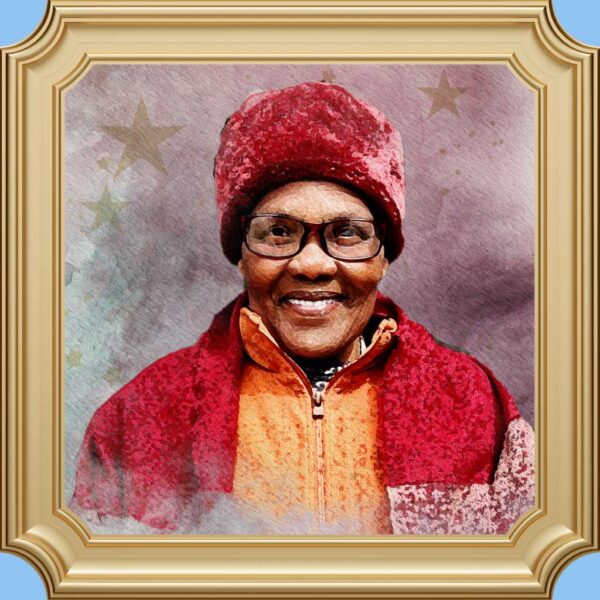Senior Programmes at GAPA
Self-help Groups
Over the years, emotionally vulnerable grandmothers were recruited by GAPA Grannies (area representatives) to join the self-help support groups that they run in their homes.
- We currently have over 600 seniors who belong to 34 groups that are spread across Khayelitsha. They meet together 2-3 times a week in their homes or in community halls where they share a meal and engage in topics and activities of their choice.
- Meetings are held to support each other emotionally, share problems and solutions, work together at crafting, and learning new skills. In these groups, seniors offer each other material and socio-emotional support.
- Many groups also spend their time together making different crafts that they hope to sell to contribute to their household incomes. Some groups meet daily, some twice/thrice a week, and some weekly.
- We estimate that approximately 60-80 group meetings are held each week. Each group elects a group leader as well as other representatives that liaise with GAPA on the triumphs and challenges they face.
- Our GAPA Group Co-ordinator regularly visits these groups to help them address issues they may have and to remain updated on the well-being of groups.
Click on an image to view a gallery of photos.
Click on an image to view a gallery of photos.
Health Club
Every Tuesday, representatives from the seniors Self-Help groups attend the Health Club hosted at the GAPA center. We average between 50-70 attendees at our Health Club. Over the past year, we have had over 40 meetings.
- The Health Club sessions are always opened by an exercise session, led by a volunteer fitness trainer (or a designated grandmother). The exercises are followed by a vocational or informational workshop presented by occupational therapists and representatives from partner organizations.
- The past year’s workshops have seen a focus on themes of cardiovascular health, dementia care, gender-based violence, legal processes for wills and testaments, and active citizenship. Our partnerships with the Heart and Stroke Foundation, DementiaSA, and ENS Africa in these workshops have provided seniors with quality resources and professional advice.
- In addition to these workshops, the occupational therapist on duty and visiting clinic staff routinely check the blood pressure, heart rate, and blood glucose levels of seniors to monitor those at risk. This helps to identify individuals who may need further treatment in their local clinics.
- Grandmothers share their learnings on how to manage chronic diseases such as HIV, Hypertension, Arthritis, Diabetes and many others. They encourage each other to lead healthy lifestyles with exercise and thoughtful dietary choices.
- Grandmothers have a space where they offer each other encouragement through prayer and/or words of wisdom. The seniors are also provided with breakfast and lunch.
Sewing Class
Seniors are guided through a 12-week programme run by our income generation coordinator. In these classes, seniors are taught how to sew items that are easy to sell such as re-usable shopping bags, aprons, bucket hats and coin purses.
- Skills development and income generation are one of our key strategies to respond to the reality of poverty in Khayelitsha.
- We started our first sewing class for seniors in 2022. We were excited to see 11 grannies complete the course.
- Florence, our income generation coordinator, has been an excellent teacher, being patient but firm with her students. She has fostered an environment of care and sharing in her classes, with many of them feeling emotionally supported while sewing with their peers.
- Since the first class, we endeavour to have 2-3 classes every year.
- Now they are also starting their own small businesses using the skills they've acquired.
Click on an image to view a gallery of photos.
Vegetable Garden
The vegetable garden is a space where seniors and children are taught how to start and maintain their own gardens.
Seniors are invited to engage in workshops where these skills are shared and practiced.
Seniors have gone on to start vegetable gardens in their groups and their homes.
